Blueberry Hill: A Cultural Hub in the Heart of St. Louis
Visitors know they are in The Loop when they look down at the sidewalk in front of them and there are glistening gold stars with the names of famous St. Louisans slightly convexing from the ground.
They know they are outside Blueberry Hill if they follow the stars to a set of blue double doors.
They know they are inside Blueberry Hill when they are surrounded by pop culture memorabilia and pictures of past celebrity guests splattered across the blue paneled walls.
They know they’re at Blueberry Hill in the Delmar Loop because they’re smiling.
That’s what owner, Joe Edwards, says is his favorite part about being the owner of the restaurant and bar situated in the St. Louis city neighborhood.

Edwards is a St. Louis native who opened Blueberry Hill in the 1970s during a time when Delmar Boulevard was rundown.
“Blueberry Hill was the first [business in The Loop] I opened from scratch,” Edwards says. “I built it up and worked on the whole area because I realized if I didn’t work on the area Blueberry Hill wouldn’t make it. The street had been in great decline and now its come back.”
The neighborhood slowly and surely resurrected under Edwards’ care. What used to be a place for drug dealers and biker gangs to convene is now one of the safest city streets in the Midwest.
“It’s comfortable for people of all backgrounds — real important for me that everyone feel comfortable here … I almost went out of business three times in the first two years because I banned all the not-so-great people and they weren’t wild about being banned for life, but I did and it set a tone that a single person could feel comfortable coming in, or a grandparent with a grandkid and know they’d be protected and safe. And that set a tone for the area and little by little the area came back … I’m real proud of the impact I’ve had.”
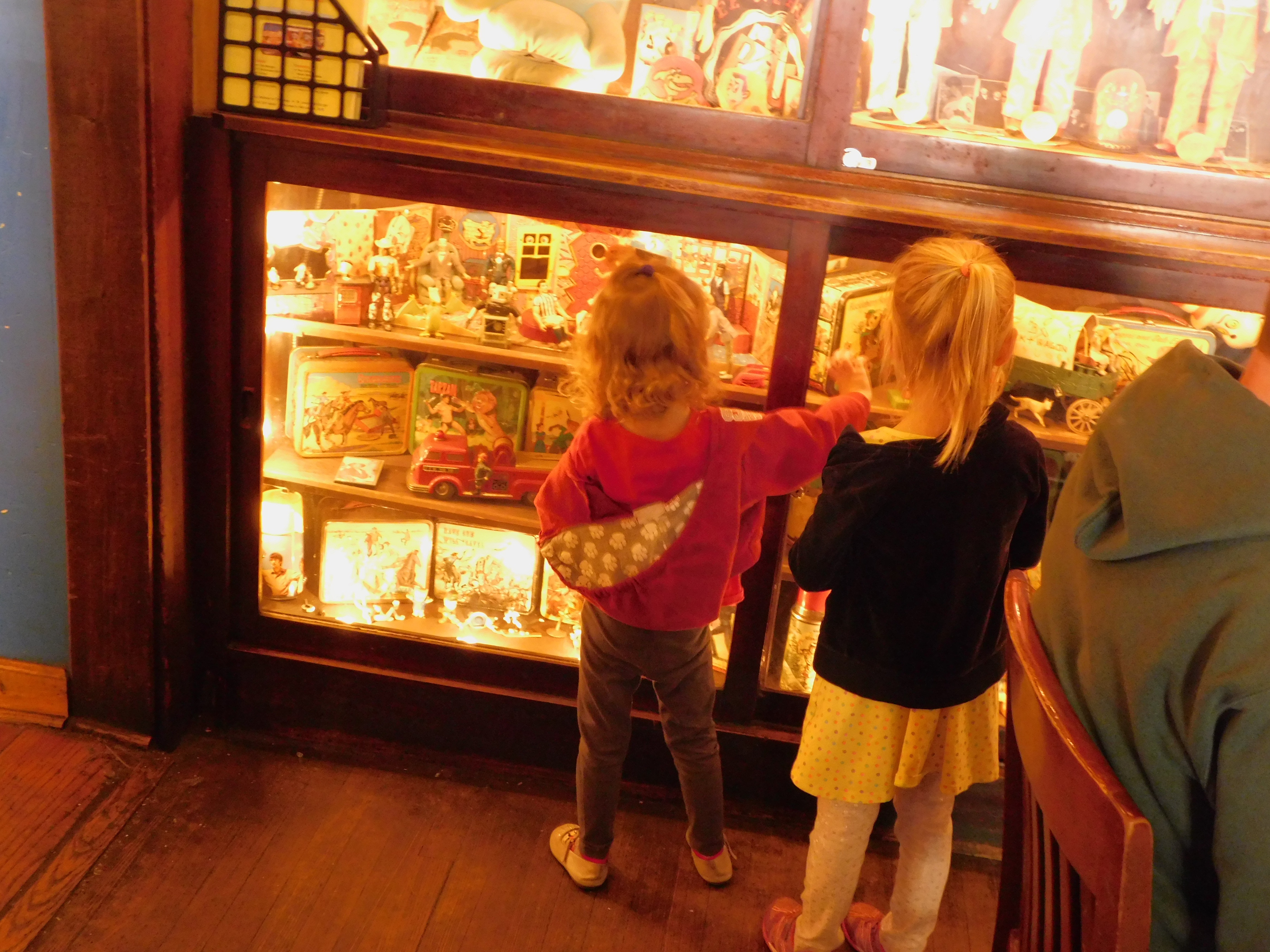
In addition to Edwards himself, others deeply connected to the community like Riverfront Times journalist Paul Friswold, who has lived and worked in The Loop for almost 20 years, have seen how the neighborhood has grown and changed.
Friswold says he used to come down to The Loop with his friends in high school and visit Vintage Vinyl and other local shops. He says the Loop was still grubby and grimy at that point. It was the place where, Friswold says, black and white St. Louis came together. It was also a neighborhood with a mix of punk rock kids, Washington University students and folks living on limited income in the section eight housing building. In those days, Friswold would look on in awe at Blueberry Hill.
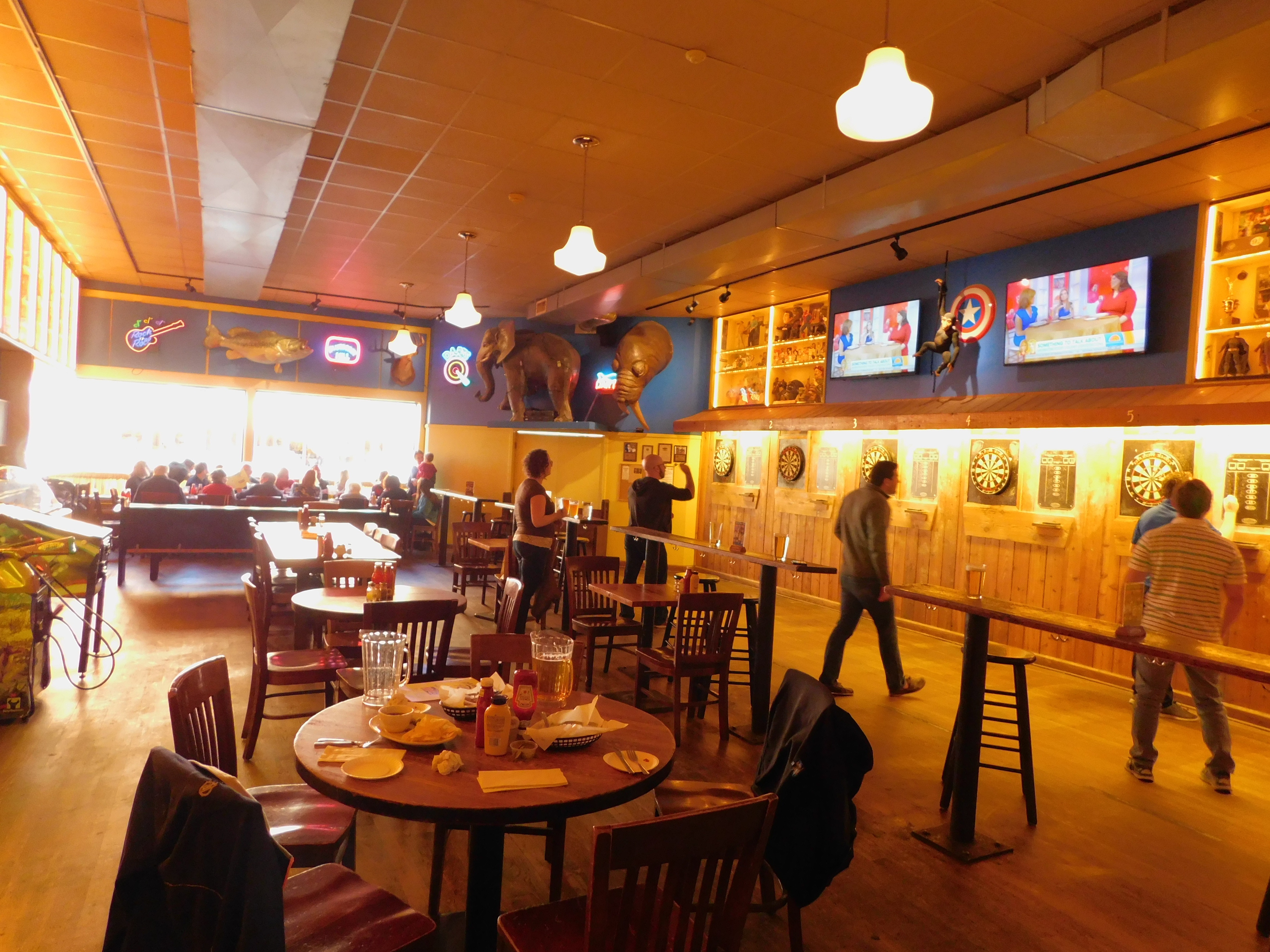
“It was just crammed full of people on a Friday night,” Friswold says. “Blueberry Hill was the center. Even when you couldn’t get in there when you were too young it was still the place to be … Blueberry Hill is sort of this cultural monolith in The Loop. It’s been in The Loop for a long time.”
Friswold believes Edwards is a special force that has kept The Loop alive and thriving for as long as it has.
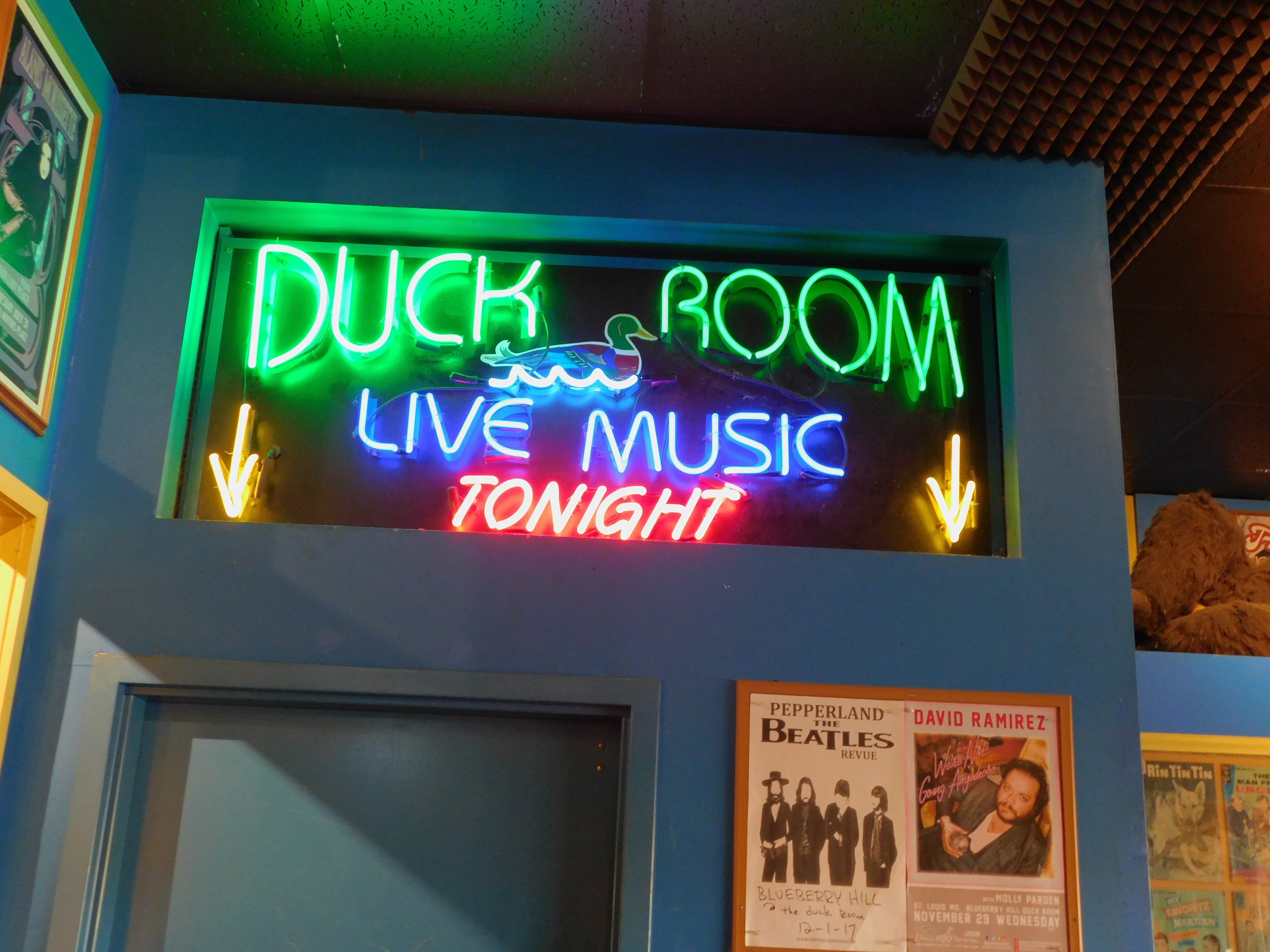
“He’s done some really bizarre stuff sometimes — just stuff you wouldn’t expect a guy to do,” Frisowold says. “He’s living his life the way he wants to live it. It works because he’s him. He’s got a lot of admirable qualities. He’s loyal to his people. He trusts them. And most of his bets about what’s going to happen with The Loop have been right. He was crazy … to open a bar down there that regular people would come to, that was a lunatic decision, and now it’s the anchor.”
With yet another stroke of genius from Edwards himself, he eventually was able to add a concert venue in the bottom of Blueberry Hill called The Duckroom, where icon Chuck Berry performed for 209 consecutive months before his death. In addition to Berry, other performers in the Duckroom have included Ray Charles, John Goodman, John Hamm, Ed Sheeran, Twenty One Pilots, Sarah Silverman, Ghost Face Killah, Dave Grohl, Robert Plant, Bill Clinton, Barack Obama, Macklemore, Lorde, Billie Joe Armstrong and Kanye West. The list goes on.
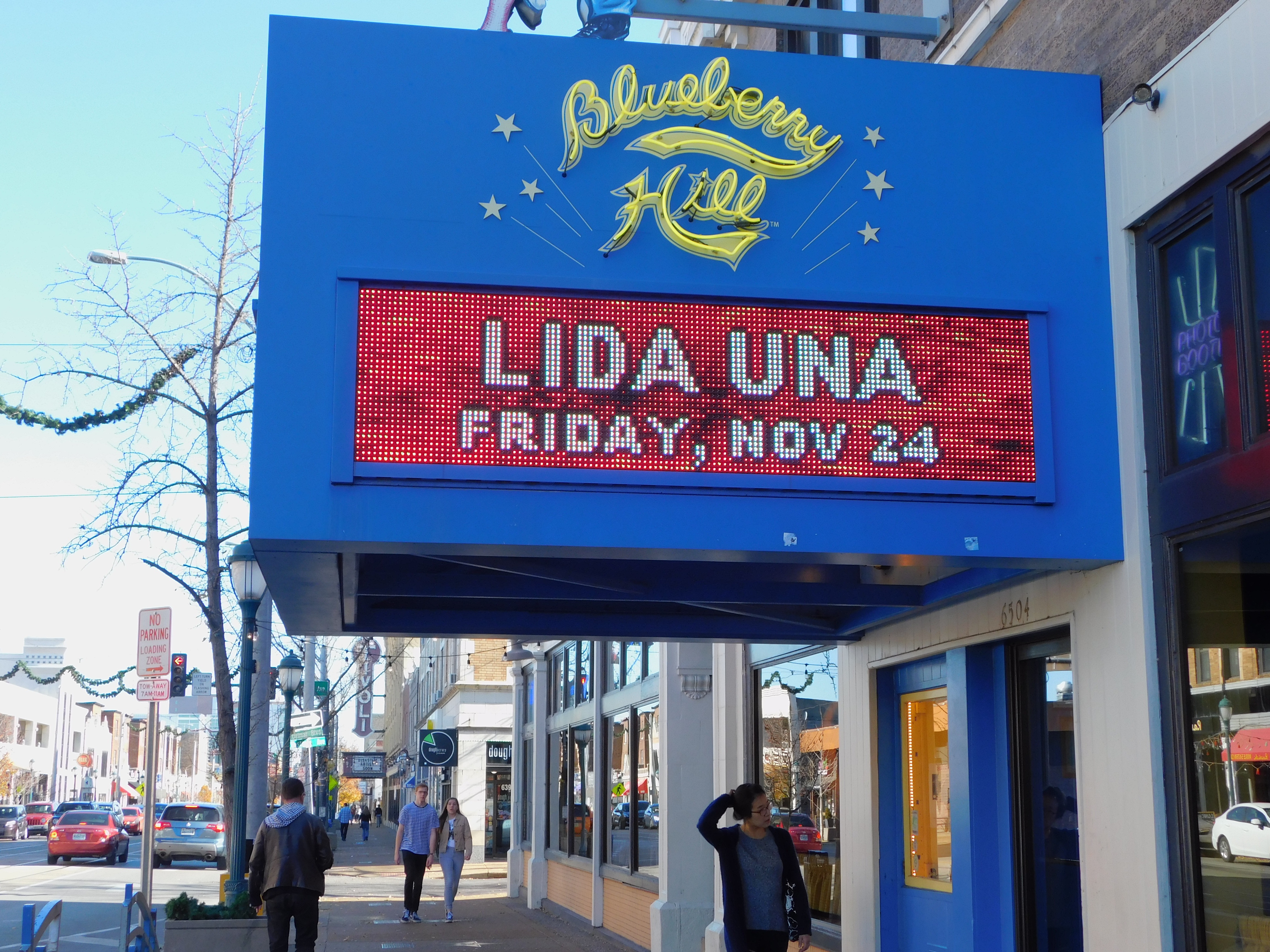
A local St. Louis band — Lida Una — played in the Duckroom on Nov. 24. Lead singer and guitarist of the group, Carter Nieters, said the Duckroom is a great performance venue.
“Definitely an honor to be on the same stage [as] Chuck Berry,” Nieters says. “That alone is huge. We go back in the dressing room and there’s a little guitar hook where you can hang your guitar and I just know he’s hung his guitar there and I hang my guitar there. It’s definitely an honor… You think about the people who have played on that stage. A little bit humbling. Very cool … It’s a nice cultural hub.”
Despite having great influence and investment in the area, being able to hang iconic pictures on the walls of himself with celebrities, and being able to bring little bands into the spotlight — Edwards says he has other motives for doing what he does.
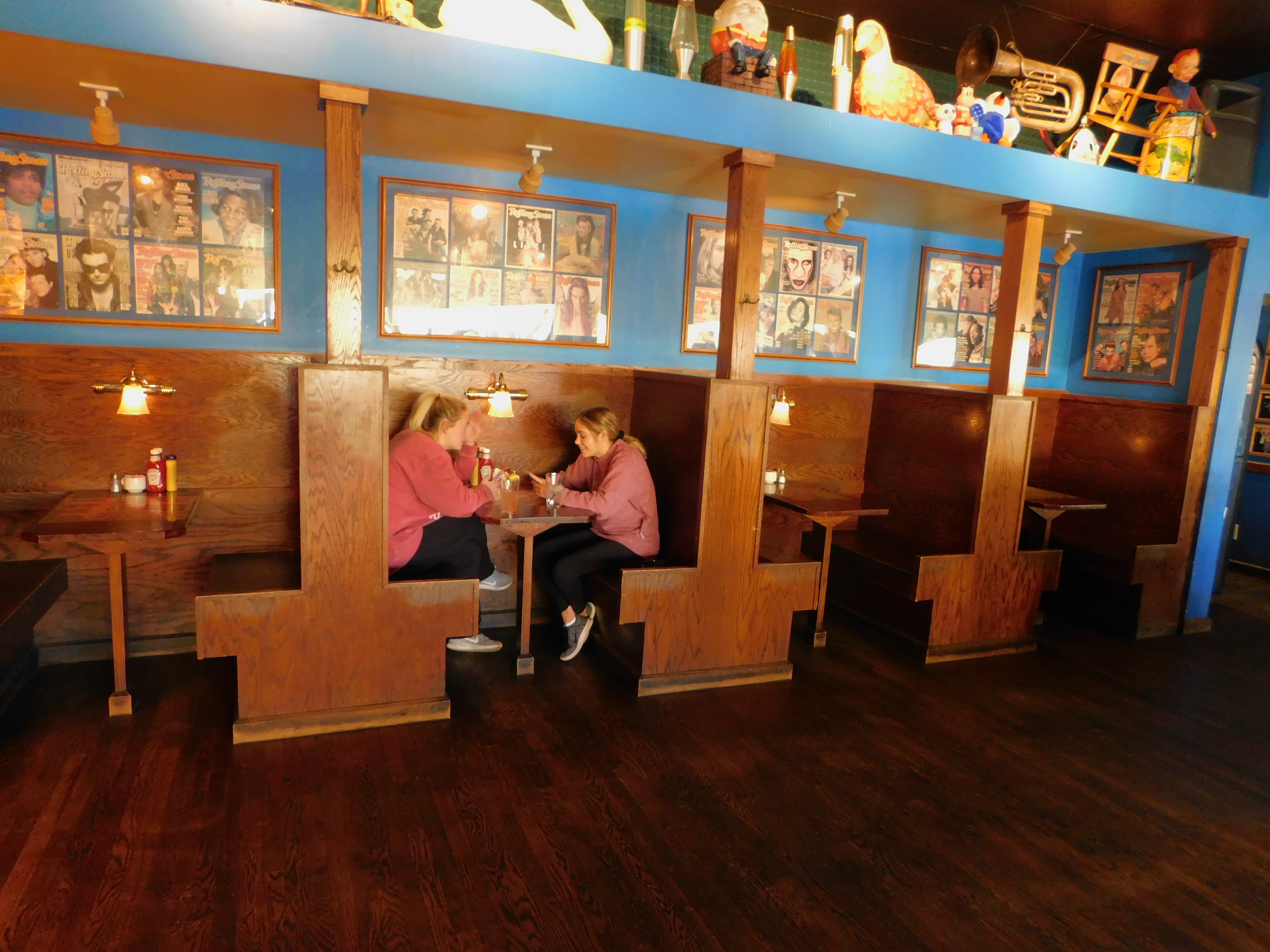
“Money’s not the most important thing in the world for me,” Edwards says. “It’s this quality of life for myself and others. So, I’m willing to lose money on a project for a number of years before it gets to a break even point if it’s the right thing to do for the area. That’s why a lot of areas in a lot of other cities don’t come back. You have to be practical and make enough money on projects so you can go on with the next one, but my philosophy is you don’t go in thinking you have to make money on every single thing … The biggest reward for me is really just seeing people smiling when they’re in here.”